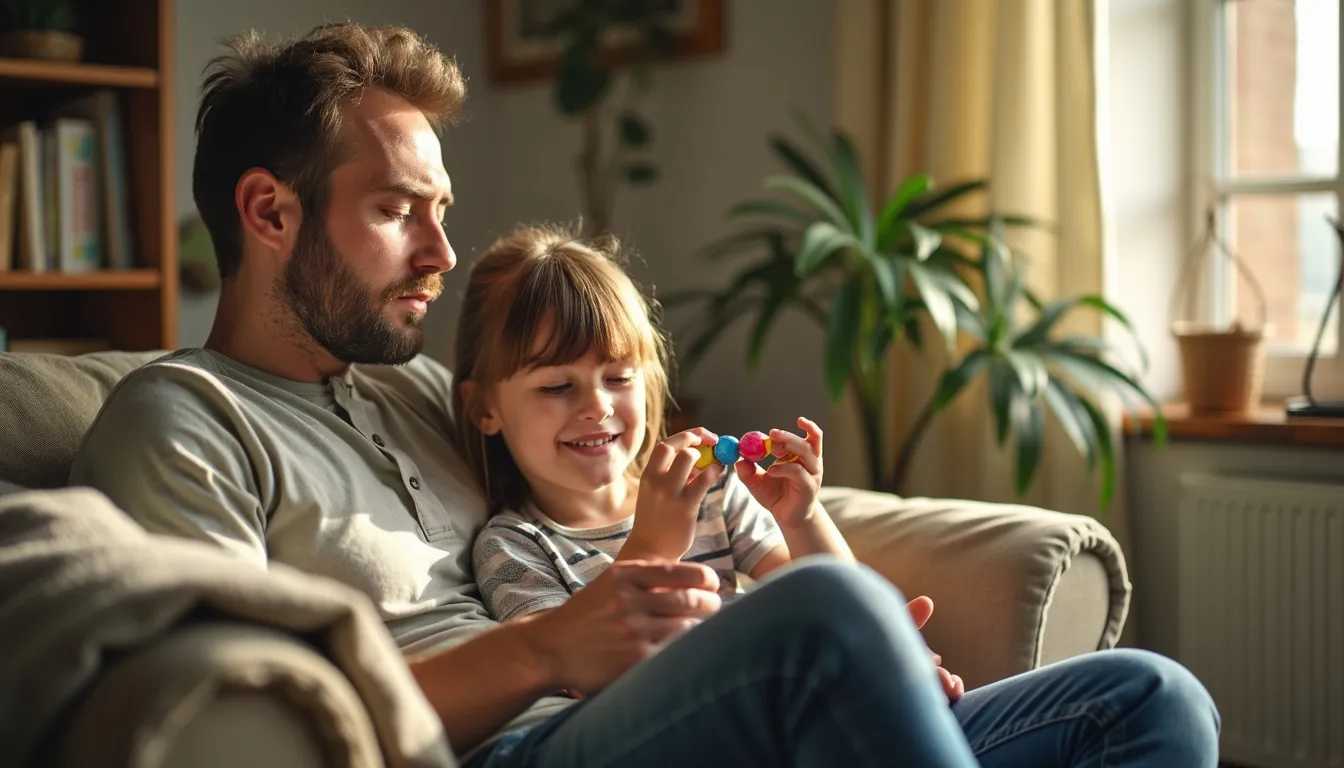The Great Key Hunt – Navigating ADHD Forgetfulness with Humor and Patience

If you have ADHD, you’re no stranger to forgetfulness. In fact, ADHD forgetfulness is a daily challenge for many, whether it's misplacing keys, phones, or other everyday items. For me, the keys seem to be the prime culprit. The amount of time I’ve spent searching for them could add up to months of my life. Just the other day, I found myself in a particularly frantic key hunt that sums up the ADHD experience perfectly.
It started like any normal day. I had a few meetings scheduled and, to my surprise, I was actually on time—no small feat when dealing with ADHD. I felt prepared, even ahead of schedule. But just as I was about to walk out the door, it hit me: where are my keys?
In most households, keys have a designated place—a hook, a bowl, a drawer. In my house, they have about 20 potential homes, none of which make any logical sense. For a neurotypical person, the logical step would be to retrace your steps. But for someone with ADHD forgetfulness, that’s not always possible because half the time, you can’t even remember what you had for breakfast, let alone where you left your keys 24 hours ago.
Discover the future of ADHD parenting with Bonding Health. Join our beta app today and explore our free journals for cutting-edge strategies and insights. Sign up now at Bonding Health Beta App and Bonding Health Journals. Transform your approach and deepen your connection.
The Frantic Search Begins

As my anxiety spiked, I began tearing the house apart, checking every pocket, countertop, and drawer. My frustration grew with every passing minute. The self-criticism began: “Why can’t I just keep track of one simple thing? Why does this always happen?”
If you’re raising a child with ADHD, this scene might sound familiar. ADHD forgetfulness isn’t just a one-off inconvenience—it’s a recurring pattern. For children, this can be incredibly frustrating, leading to meltdowns or feelings of inadequacy. As an adult, I felt the same emotions bubbling up as I raced around, unable to find my keys.
The ADHD Brain and Working Memory Challenges

One of the most challenging aspects of ADHD is its effect on working memory. ADHD often comes with a deficit in this area, making it difficult to keep multiple pieces of information in mind at once. This is a common cause of memory issues in ADHD, and for me, it means that when I’m in the middle of doing something—whether it’s cooking breakfast or answering an email—I’m not consciously tracking where items like my keys, wallet, or phone end up. They get dropped wherever I happen to be, and my brain immediately shifts focus.
This scatterbrained pattern isn’t due to laziness or carelessness; it’s just how the ADHD brain functions. Once I understood this, I was able to approach moments like this with more compassion for myself.
Shifting My Mindset
Instead of spiraling into frustration, I paused. From past experiences, I knew that getting overwhelmed only made things worse. So, I stopped the frantic search and applied a mindfulness technique that I’ve found helpful: breaking down the task into smaller steps.
I took a few deep breaths, centered myself, and systematically walked through the last few hours of my day. While this isn’t a natural process for me—organizing my thoughts takes effort—it’s a practice that helps me reduce stress. By calmly retracing my steps, I eventually found the keys in my gym bag. They had fallen there after my morning workout.
Managing ADHD Forgetfulness: Practical Strategies
If your child frequently misplaces things, there are strategies you can try to reduce the stress that comes with ADHD forgetfulness. These are techniques that I use to help me cope:
-
Designated Places: Establish a habit of placing frequently lost items like keys, phones, or backpacks in specific spots. For those with ADHD, consistency is key, even though it may take time to develop the habit.
-
Mindfulness Pausing: Teach your child (or yourself) to pause and mentally check in with their surroundings before rushing from one task to another. This simple step can make it easier to track where things are placed.
-
Visual Cues: Brightly colored keychains, tags, or labels can help make items stand out. When dealing with ADHD memory issues, visual reminders are crucial for making frequently lost items more noticeable.
-
Self-Compassion: Most importantly, teach your child (and practice yourself) self-compassion. ADHD forgetfulness is not a sign of irresponsibility or failure. By understanding how your brain works, you can approach forgetfulness with patience and avoid negative self-talk.
Emotional Coping for ADHD Parents and Adults

As frustrating as it is to lose something, the real challenge for people with ADHD (and for the parents of children with ADHD) is managing the emotions that come with forgetfulness. This experience reminded me that the key isn’t just in finding the lost item—it’s in managing the emotional rollercoaster that accompanies these moments.
If your child loses something, whether it’s a toy, homework, or keys, remember that their brain is wired differently. Instead of immediately reacting with frustration, try helping them break the problem down into smaller, manageable steps. You can say something like, “Let’s take a moment and think about what we were doing when we last had it. Can we retrace those steps together?”
This not only helps calm the situation but also teaches problem-solving and emotional regulation—skills that are invaluable for someone with ADHD.
Unlock New Strategies for ADHD Management
Are you ready to transform your approach to ADHD parenting? Join the beta testing of our groundbreaking app specifically designed for emotional regulation in ADHD. Sign up today at Bonding Health Beta App and gain exclusive access to tools that empower both you and your child. Don't miss out on our free journals at Bonding Health Journals, where you can stay informed and proactive in managing ADHD with the latest research and strategies.
Final Thoughts for Parents

Raising a child with ADHD can feel like an endless treasure hunt—except the treasure is often lost keys, missing homework, or forgotten jackets. While it’s tiring, it’s also an opportunity to teach your child essential life skills like patience, emotional regulation, and creative problem-solving.
Reframing forgetfulness as an opportunity to practice these skills helps take the sting out of the situation. Remember, it’s not just about finding the keys—it’s about finding a way to support your child through the daily challenges they face with ADHD forgetfulness.


